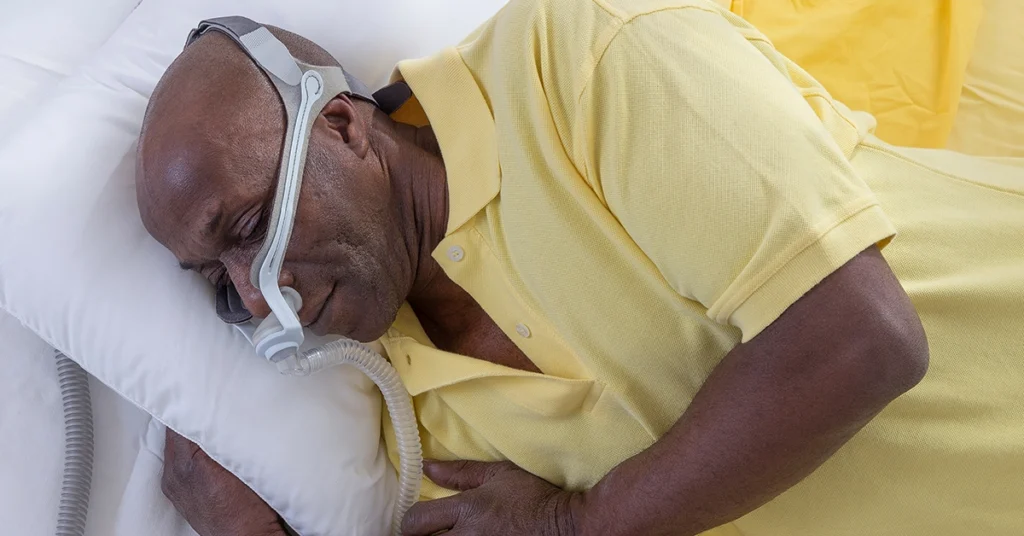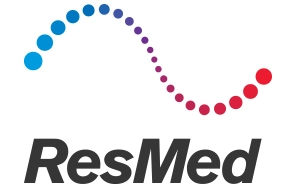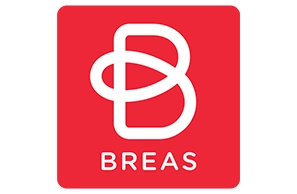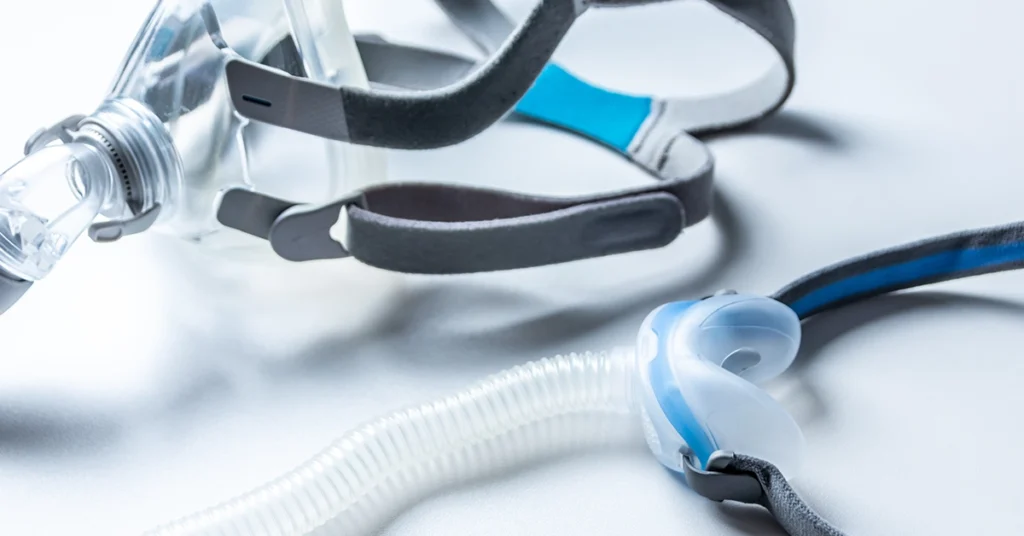The 5 Best CPAP Machines in 2024
Reviewed by
- Last Updated
- Reviewed and Fact Checked

For many baby boomers, a good night’s sleep can feel like an elusive dream. As we age, the risk of developing sleep apnea increases, leading to disrupted sleep, daytime fatigue, and severe health complications.
Continuous Positive Airway Pressure (CPAP) machines have emerged as a game-changer for those struggling with sleep apnea, providing a non-invasive way to keep airways open and ensure restful sleep.
However, with so many options on the market, finding the best CPAP machine for your unique needs can take time and effort.
In this guide, we’ll explore the world of CPAP machines for seniors, offering expert advice on what to look for and showcasing our top picks to help you breathe easily and sleep soundly through your golden years.
Why Trust Boomer Central?
Commitment to Quality:
We follow strict editorial guidelines to ensure that all information is accurate, fair, and relevant for Baby Boomers. Our recommendations are based on thorough research and expert analysis.
Trusted Partnerships:
We collaborate only with reputable companies and experts to bring you the best resources and products. Our partners are carefully selected to meet high standards of quality and reliability.
Extensive Research:
We evaluate multiple sources and data points for each topic to provide comprehensive and reliable advice tailored to your needs. Our team is dedicated to keeping you informed with up-to-date and trustworthy content.
Top Rated CPAP Machines
Brand
Description
Rating
Price
Links

ResMed AirSense Auto 11 • A modern CPAP machine with auto-adjusting pressure, built-in humidifier, and user-friendly features for personalized comfort.
$1,004

Breas Z2 Auto • Compact, lightweight CPAP machine with auto-adjusting pressure and waterless humidification, perfect for traveling.
$725

Luna G3 BiLevel 25A CPAP • Feature-rich CPAP machine with a built-in humidifier, auto-adjusting pressure, and user-friendly interface.
$1,749

Somnetics Transcend Micro • Ultra-portable CPAP machine with a unique cylindrical design, waterless humidification, and auto-adjusting pressure.
$779
Navigating the World of CPAP Machines
Investing in a CPAP machine is a crucial step towards reclaiming restful sleep and improving overall health for those with sleep apnea.
However, with numerous options available, each boasting unique features and benefits, selecting the best CPAP machine can be daunting. As a sleep expert, I’ve helped countless individuals find their ideal CPAP machine, and I’m here to share some valuable insights to guide you on your journey.
First and foremost, it’s essential to understand that the best CPAP machine depends on several key factors, including the severity of your sleep apnea, lifestyle preferences, and budget. For instance, a compact, lightweight machine like the Breas Z2 Auto or Somnetics Transcend Micro might be the perfect fit if you travel frequently.
But, if you prioritize advanced features and customizable comfort settings, the ResMed AirSense Auto 11 or Luna G3 BiLevel 25A CPAP may be more suitable.
To make the best decision, consult a sleep specialist who can assess your needs and provide personalized recommendations. They can also help you obtain a prescription and ensure that your chosen CPAP machine is compatible with your specific sleep apnea treatment plan.
Another crucial factor to consider is the trial period offered by the manufacturer or supplier. Many companies allow you to test a CPAP machine for a set period, ensuring that it meets your needs and preferences before committing to a long-term investment. Take advantage of these trial periods, and don’t hesitate to contact the manufacturer or your sleep specialist if you encounter any issues or have questions.
The value of user reviews and testimonials from other baby boomers who have experience with various CPAP machines should be considered.
While everyone’s needs are unique, reading about others’ experiences can provide valuable insights into the real-world performance, comfort, and durability of different models, helping you make a more informed decision.

Our Best Pick Overall
ResMed AirSense Auto 11
The ResMed AirSense Auto 11 is a state-of-the-art CPAP machine with auto-adjusting pressure, a built-in humidifier, and a user-friendly interface. With advanced technology and personalized comfort settings, this device is designed to provide optimal sleep therapy for individuals with sleep apnea.
Why we like ResMed AirSense Auto 11
The ResMed AirSense Auto 11 is an excellent choice for baby boomers who prioritize comfort, convenience, and advanced features in their CPAP therapy. The machine’s auto-adjusting pressure technology ensures that users receive the precise pressure level needed to keep their airways open throughout the night, adapting to changes in breathing patterns for optimal effectiveness. The built-in humidifier and heated tubing help to alleviate common side effects of CPAP therapy, such as dry mouth and nasal congestion, providing a more comfortable experience. Additionally, the user-friendly interface and smartphone compatibility make it easy for users to track their sleep data and adjust settings as needed, even if they aren’t tech-savvy. With its advanced features and ease of use, the ResMed AirSense Auto 11 is a top choice for baby boomers seeking a premium CPAP machine to improve their sleep and overall quality of life.
Author’s Pick
Breas Z2 Auto
The Breas Z2 Auto is a compact, lightweight CPAP machine that offers auto-adjusting pressure and waterless humidification. Designed for travelers, this device is perfect for users who need effective sleep therapy.
Why we like Breas Z2 Auto
The Breas Z2 Auto is ideal for baby boomers who enjoy traveling and want to maintain their sleep apnea treatment while on the road. The machine’s compact size and lightweight design make it easy to pack in a suitcase or carry-on bag, ensuring that users can continue their therapy wherever their adventures take them. Despite its small size, the Breas Z2 Auto offers powerful performance, with auto-adjusting pressure technology that adapts to the user’s breathing patterns for optimal effectiveness. The waterless humidification system uses moisture from the user’s exhaled breath to humidify the air, eliminating the need for a separate water chamber and making the device even more travel-friendly. With its portability, advanced features, and convenience, the Breas Z2 Auto is a top pick for active baby boomers who refuse to let sleep apnea slow down.
Honorable Mentions
Luna G3 BiLevel 25A CPAP

The Luna G3 BiLevel 25A CPAP is a feature-rich device that offers auto-adjusting pressure, a built-in humidifier, and a user-friendly interface. This machine provides comprehensive sleep therapy monitoring and management with advanced event detection and data tracking capabilities.
Our take on Luna G3 BiLevel 25A CPAP
The Luna G3 BiLevel 25A CPAP is an excellent choice for baby boomers who want a sophisticated sleep apnea treatment device with advanced features. The machine’s auto-adjusting pressure technology ensures that users receive the optimal pressure level throughout the night. At the same time, the BiLevel feature provides higher pressure during inhalation and lower pressure during exhalation for added comfort. The built-in humidifier helps to alleviate dry mouth and nasal congestion, and the user-friendly interface makes it easy for users to navigate settings and track their sleep data. With advanced event detection and data tracking capabilities, the Luna G3 BiLevel 25A CPAP provides users and their healthcare providers with detailed insights into sleep apnea events and treatment progress. For baby boomers who want a comprehensive and customizable sleep apnea treatment solution, the Luna G3 BiLevel 25A CPAP is a top contender.
Somnetics Transcend Micro

The Somnetics Transcend Micro is an ultra-portable CPAP machine with a unique cylindrical design and waterless humidification. Its auto-adjusting pressure and quiet operation offer effective sleep therapy in a compact package.
Our take on Somnetics Transcend Micro
Baby boomers who are always on the move will appreciate the Somnetics Transcend Micro’s ultra-portable design and powerful performance. The machine’s cylindrical shape and lightweight construction make it easy to pack in a purse, backpack, or overnight bag, ensuring that users can maintain their sleep apnea treatment no matter where their travels take them. Despite its small size, the Somnetics Transcend Micro offers auto-adjusting pressure technology that adapts to the user’s breathing patterns for optimal effectiveness. The waterless humidification system uses moisture from the user’s exhaled breath to humidify the air, eliminating the need for a separate water chamber and making the device even more travel-friendly. With its whisper-quiet operation and user-friendly interface, the Somnetics Transcend Micro is a top choice for active baby boomers who want a reliable, portable, easy-to-use CPAP machine.
Key Features to Look for in a CPAP Machine
When shopping for a CPAP machine, it’s essential to understand the key features that contribute to effective sleep apnea treatment and user comfort. By prioritizing these features, baby boomers can find a device that best suits their needs and preferences.
First and foremost, consider the CPAP machine’s pressure range and adjustability. Look for devices that offer a wide range of pressure settings, typically between 4 and 20 cm H2O, to accommodate varying levels of sleep apnea severity.
Auto-adjusting pressure technology, such as that found in the ResMed AirSense Auto 11 and Breas Z2 Auto, can be particularly beneficial, as it continuously adapts to the user’s breathing patterns throughout the night for optimal effectiveness.
Humidification is another crucial feature to look for in a CPAP machine. When using CPAP therapy, many users experience dry mouth, nasal congestion, and other discomforts. Still, a built-in humidifier can help alleviate these side effects by adding moisture to the air. Some devices, like the Luna G3 BiLevel 25A CPAP, offer heated humidification for added comfort.
Noise level is also important, especially for light sleepers or those with sleep partners. Look for CPAP machines with whisper-quiet operation, typically around 30 decibels or less, to minimize disruptions and ensure a peaceful sleep environment.
Consider CPAP machines with advanced data tracking capabilities for tech-savvy baby boomers or those who want to track their sleep apnea treatment progress. Many devices, such as the Somnetics Transcend Micro, offer smartphone compatibility and companion apps that allow users to monitor their sleep data, adjust settings, and share information with their healthcare providers.
Portability is another key feature for baby boomers who travel frequently or want the flexibility to use their CPAP machine in different locations. Look for compact, lightweight devices like the Breas Z2 Auto or Somnetics Transcend Micro, designed with portability in mind and easily packed in a suitcase or carry-on bag.
Devices with intuitive interfaces, easy-to-navigate menus, and clear displays can significantly improve the overall user experience, particularly for those who are new to CPAP therapy or may not be as comfortable with technology.
By prioritizing these key features when selecting a CPAP machine, baby boomers can find a device that offers effective sleep apnea treatment, optimal comfort, and convenience, ultimately leading to improved sleep quality and overall well-being.
Maintaining Your CPAP Machine
Proper CPAP machine maintenance and cleaning are essential for ensuring optimal device performance and protecting your health. By following a regular cleaning routine and taking care of your equipment, you can extend the lifespan of your CPAP machine and enjoy the full benefits of sleep apnea treatment.
To begin, it’s crucial to clean your CPAP mask and tubing daily. Remove the mask cushion and headgear, and gently wash them in warm, soapy water. Avoid using harsh chemicals or abrasive materials that could damage the components. Rinse thoroughly and allow the parts to air dry before reassembling your mask.
The humidifier chamber should also be cleaned daily. Empty any remaining water and wash the chamber with warm, soapy water. If you notice any mineral buildup, soak the chamber in a mixture of equal parts white vinegar and water for about 15 minutes before rinsing and allowing it to air dry. Always use distilled water in your humidifier to minimize mineral deposits and extend the component’s life.
Your CPAP machine’s air filter is vital in keeping the air clean and free from dust, allergens, and other particles.
Most devices have a reusable filter that should be cleaned every two weeks and replaced every six months. To clean the filter, rinse it in warm water and let it air dry completely before placing it back in the machine. Some devices may also have a disposable ultra-fine filter that should be replaced monthly.
In addition to regular cleaning, inspecting your CPAP equipment for signs of wear and tear is essential. Check your mask cushion for cracks or tears, and replace it if necessary. Examine your tubing for holes or leaks, and replace it every 6 to 12 months, or sooner if you notice any damage. By addressing these issues promptly, you can ensure that your CPAP machine continues to function effectively and provide optimal sleep apnea treatment.
To further extend your CPAP machine’s life, handle it carefully and keep it away from extreme temperatures, direct sunlight, and humidity. When traveling, use a protective carrying case to prevent damage to your device. Contact your equipment provider or healthcare professional for guidance if you notice any unusual noises, smells, or malfunctions.
By incorporating these cleaning and maintenance tips into your daily routine, you can ensure that your CPAP machine remains in top condition. This will provide you with the best possible sleep apnea treatment and support your overall health and well-being. Remember, a well-maintained CPAP machine is an investment in your quality of life, and taking the time to care for your equipment will pay off in the long run.
Frequently Asked Questions about CPAP Machines
What is Obstructive sleep apnea?
Obstructive sleep apnea (OSA) is a sleep disorder where the airway repeatedly becomes blocked during sleep, causing breathing to stop and start. This results in disrupted sleep, loud snoring, and potential daytime fatigue. OSA can lead to serious health issues like high blood pressure, heart disease, and stroke if left untreated.
What is a CPAP mask?
A CPAP (Continuous Positive Airway Pressure) mask is worn over the nose and mouth during sleep to treat obstructive sleep apnea. It delivers a steady stream of air to keep the airway open, preventing blockages and interruptions in breathing, ensuring continuous airflow, and improving sleep quality.
How do I know if I need a CPAP machine?
If you experience sleep apnea symptoms, such as loud snoring, gasping for air during sleep, daytime fatigue, or morning headaches, consult your doctor. They may recommend a sleep study to diagnose sleep apnea and determine if a CPAP machine is necessary for treatment.
Can a CPAP machine cure sleep apnea?
While a CPAP machine effectively treats sleep apnea, it does not cure the underlying condition. CPAP therapy manages sleep apnea by providing a steady stream of pressurized air to keep the airway open during sleep, but the condition will return if treatment is discontinued.
Are there any side effects of using a CPAP machine?
Some common side effects of CPAP use include dry mouth, nasal congestion, skin irritation from the mask, and claustrophobia. Most side effects can be managed by adjusting the machine settings, trying different masks, or using a humidifier. Consult your doctor or CPAP provider if side effects persist.
How long does it take to adjust to using a CPAP machine?
Adjusting to a CPAP machine can take a few days or weeks. It is essential to use the device consistently and communicate with your doctor about any issues or discomfort. Many people find that the benefits of improved sleep quality outweigh the initial adjustment period.
Will insurance cover the cost of a CPAP machine?
Most insurance plans, including Medicare and Medicaid, cover CPAP machines when a doctor prescribes sleep apnea treatment. However, coverage varies depending on the specific plan and may require meeting certain criteria, such as a sleep study or proof of CPAP adherence. Check with your insurance provider for details on your coverage.

